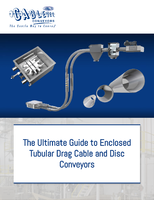EPRI, Newton Labs work to profile used nuclear fuel assemblies.
Press Release Summary:
Electric Power Research Institute, Inc. (EPRI) and Newton Research Labs, Inc. have teamed together to develop underwater laser scanning tool to measure individual alignment profile of used nuclear fuel assemblies. First successful demonstration of said technology was recently completed, and second phase of development/deployment will be announced in near future. After system is validated, it will be extended to also enable measurement of PWR fuel assemblies.
Original Press Release:
EPRI and Newton Labs Team Up to Develop Machine Vision/Underwater Laser Scanning Inspection Methodology to Profile Used Nuclear Fuel Assemblies
Seattle, WA & Palo Alto, CA - The Electric Power Research Institute, Inc. (EPRI), an independent, public-focused nonprofit research and development organization and Newton Research Labs, Inc., a Seattle-based manufacturer of machine vision, robotics and optical automation, have teamed together to develop an underwater laser scanning tool to precisely measure the individual alignment profile of used nuclear fuel assemblies.
A successful demonstration of the technology has been recently completed and a second phase of development/deployment is anticipated to be announced in the near future. The tool is intended to produce highly-detailed dimensional measurements of BWR fuel bundles. After the system is validated, it will be extended to also enable the measurement of PWR fuel assemblies.
The misalignment (or distortion) of used fuel bundles, due to bowing, bulging, twisting or lengthening, is generally quite small and difficult to measure. For instance a BWR fuel bundle may have a bow of less than a half inch along its 13-foot length (12 mm in 4 m). Nevertheless it is a concern among nuclear plant operators, especially when it comes to reloading the core at the end of an outage. Measurement of fuel bundles using the traditional systems based on ultrasonic testing (UT) or Linear Variable Differential Transformers (LVDTs) may be time-consuming and can impact the critical path schedule of getting a reactor back online. The conceptual design and functional requirements of the new scanning tool is targeted toward reducing fuel assembly/bundle measurement times, while delivering comparable resolution, accuracy, and precision of the legacy systems.
"Fuel distortion is an operational issue that may impact fuel off-load/re-load activities, and if not adequately managed, may also impact reactivity control systems," said John W. Bramblet, President and CEO of Newton Labs. "New tools are needed to efficiently and effectively measure fuel distortion so that plant operators may have the data necessary to manage distortion through fuel design features, core design, and plant conditions. The development and demonstration of this laser scanning inspection methodology will potentially enhance the data collection process, and thereby, improve the operations of nuclear plants," Bramblet concluded.
The non-contact fuel assembly/bundle scanning tool will be based upon landmark underwater laser scanning technology previously developed by Newton Research Labs specifically for the nuclear power industry and the winner of a 2012 Industry TIP award. In addition to the speed, highly precise measurements and real-time human viewable video produced by this tool, the technology will include the capability to store and later manipulate 3D CAD and image data to assist in fuel life cycle profiling. Newton engineers intend for the new tool system to provide fully measureable models of fuel assembly straightness, without the requirement of using a general purpose, third-party commercial application to perform any measurements.
About EPRI
The Electric Power Research Institute, Inc. (EPRI, www.epri.com) conducts research and development relating to the generation, delivery and use of electricity for the benefit of the public. An independent, nonprofit organization, EPRI brings together its scientists and engineers as well as experts from academia and industry to help address challenges in electricity, including reliability, efficiency, health, safety and the environment. EPRI's members represent more than 90 percent of the electricity generated and delivered in the United States, and international participation extends to 40 countries. EPRI's principal offices and laboratories are located in Palo Alto, Calif.; Charlotte, N.C.; Knoxville, Tenn.; and Lenox, Mass.
About Newton Research Labs, Inc.
Seattle based Newton Labs is a privately held manufacturer of machine vision, robotics and optical automation. A spin-off of the Massachusetts Institute of Technology (MIT), the company has for more than 20 years developed and marketed high-performance, software guided automation for industrial processes with significant concentration on the nuclear power industry. Newton's products are designed to allow the quality, efficiency and cost effectiveness of computer technology to replace the human element in virtually every industry. Newton Labs has deployed more than 20,000 machine vision, robotic and automation systems worldwide. Additional information about Newton and its nuclear industry products may be found at http://www.newtonlabs.com/power.htm.




